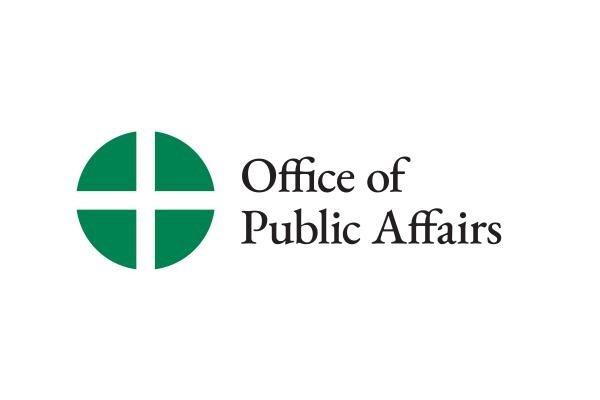USCCB President Delivers Statement on Race Relations at General Assembly
ST.LOUIS—ArchbishopJoseph E. Kurtz, of Louisville, Kentucky, president of the U.S. Conference ofCatholic Bishops (USCCB), delivered a statement on race relations at their annual Spring General Assembly, June 10. Thefull statement follows: Statement of Archbishop Joseph E. Kurtz ofLouisville, Kentuck
ST.LOUIS—ArchbishopJoseph E. Kurtz, of Louisville, Kentucky, president of the U.S. Conference ofCatholic Bishops (USCCB), delivered a statement on race relations at their annual Spring General Assembly, June 10.
Thefull statement follows:
Statement of Archbishop Joseph E. Kurtz ofLouisville, KentuckyPresident of the U.S. Conference of Catholic BishopsJune 10, 2015Gatheringhere in the city of St. Louis, so near to Ferguson, and looking ahead toBaltimore in November, I cannot help but think of recent events that have takenplace around our beloved country.Wemourn those tragic events in which African Americans and others have lost theirlives in altercations with law enforcement officials. These deaths have led topeaceful demonstrations, as well as violent conflicts in the streets of ourcities. In every instance, our prayer for every community is that of our Lordin Saint John's Gospel, "that they all may be one."
Sadly,there is all too often an alienation of communities from those sworn to protectthem. I respect the sacrifices made by police officers throughout the nation,who in their daily work are placed in harm's way.Let us pray that they suffer no harm as theycarry out their duties, and that they always be guided in good and right actionas they serve.
Wejoin our voices with civic and religious leaders in pledging to work forhealing and reconciliation. Our efforts must address root causes of theseconflicts. A violent, sorrowful history of racial injustice, accompanied by alack of educational, employment and housing opportunities, has destroyedcommunities and broken down families, especially those who live in distressedurban communities. Confronted by these realities, the familiar words of BlessedPope Paul VI still resonate and continue to call us to action in our day: ifyou want peace, work for justice.
TheChurch has been present in these communities, active in education, health careand charities. Positive efforts are being made in collaboration with ecumenicaland interfaith groups in communities where confrontations between individualcitizens and law enforcement have taken place. Pope Francis calls each of us towork for a culture of encounter and has encouraged all people of good faith toreach out to those in their community and be truly welcoming of all.Let the rich cultural diversity of our localcommunities be woven together in charity, hospitality and service to oneanother, to join us together as sisters and brothers.
The1979 U.S. Bishops' pastoral letter, "Brothers and Sisters to Us," named racialprejudice as a grave sin that denies the truth and meaning of the Incarnationof the Word of God in Jesus Christ.Unfortunately, the words of that letter still ring true: "Racism is anevil which endures in our society and in our Church." The bishops called fordecisive action to eradicate racism from society and considerable progress hasbeen made since 1979. However, more must be done. Let us again call upon ourCatholic people to pray frequently in their homes and in their churches for thecause of peace and racial reconciliation.
Herewe are in St. Louis where, in 1947, Cardinal Joseph Ritter, who died 48 years ago today, integrated Catholicschools well before the 1954 Supreme Court decision in Brown v. Board ofEducation. It shows that the Catholic Church can be at the forefront ofpromoting justice in racial tensions. It is time for us to do it again. Isuggest five concrete ways in which the Catholic community can commit to endingracism and promoting peace, justice and respect for all persons:
1.Pray for peace and healing among allpeople.
2.Study the Word of God and the socialteaching of the Church in order to gain a deeper appreciation of the dignity ofall persons.
3.Make a sincere effort to encounter morefully people of different racial backgrounds with whom we live, work andminister.
4.Pursue ways in which Catholic parishesand neighborhoods can be truly welcoming of families of different racial andreligious backgrounds.
5.Get to know our local law enforcementofficers. Let them know of our support and gratitude. And encourage youngpeople to respect all legitimate authority.
Sadly,the present racial tension in the United States is not something new. It is themost recent manifestation of a relationship as old as the history of ournation, one marred by the tragedy of human slavery. Promoting peace andreconciliation is the only way forward. And we must constantly strive toachieve these goals, trusting in the Lord to lead and guide us, accompanied byhis merciful love. May He help all of us to recognize the dignity inherent inevery human being, for God said, "Let us make human beings in our image, afterour likeness."
---
Keywords:U.S. Conference of Catholic Bishops, USCCB, Spring General Assembly, ArchbishopJoseph E Kurtz, race, Ferguson, Baltimore, St. Louis, Pope Francis, CardinalJoseph Ritter, Brown vs. Board of Education, racial tensions, human dignity,slavery, peace, Pastoral Letter, Brothers and Sisters to Us, reconciliation,healing
# # #
MEDIA CONTACT:Norma Montenegro Flynn O: 202-541-3202
